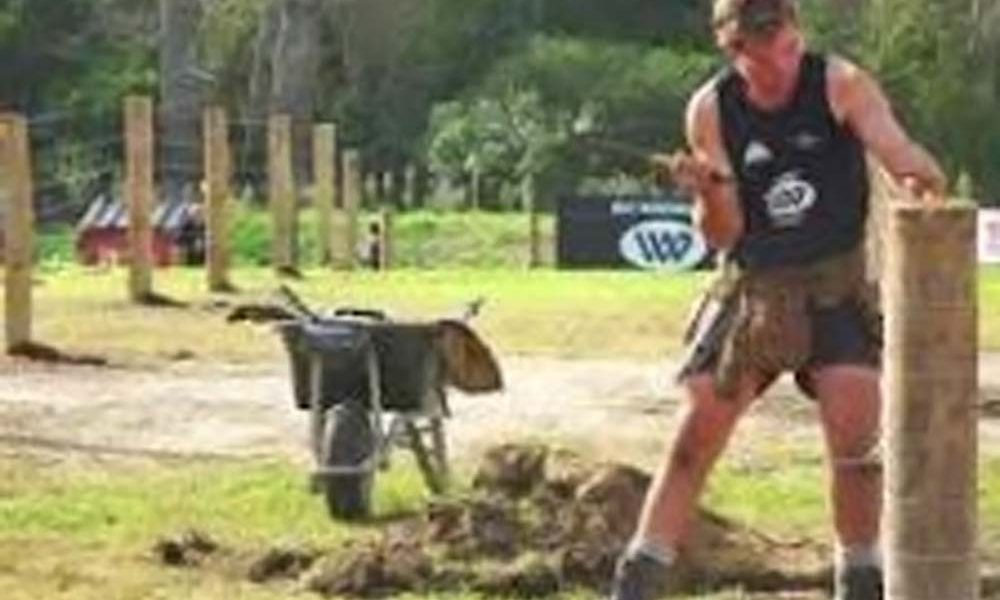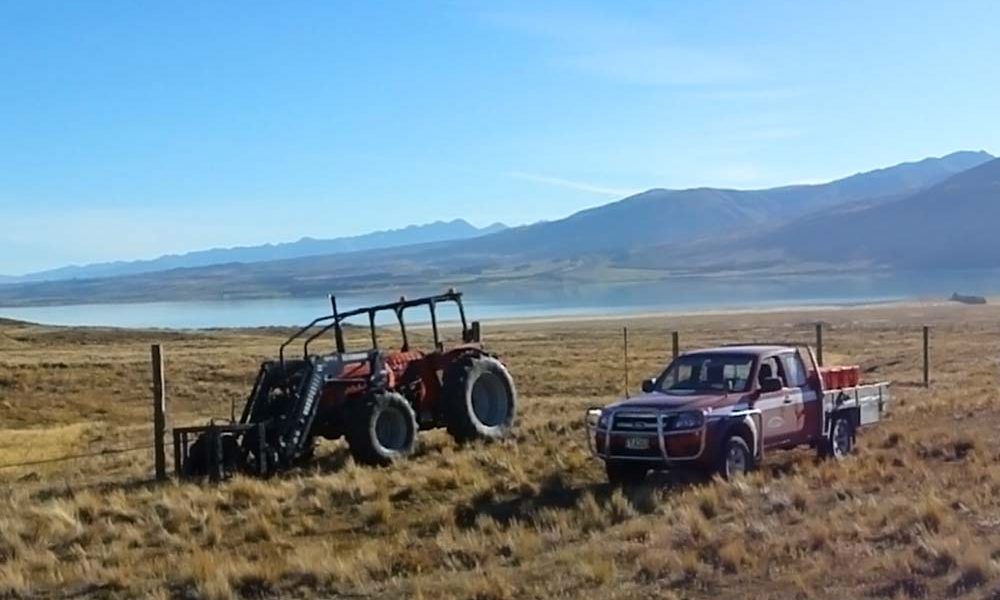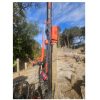
Ruben and Heather Connelly only need to look out the window to see how land use in Central Otago is rapidly changing. They live with their growing young family on a four hectare lifestyle block on the outskirts of Cromwell.
Their property was part of a sheep farm, but a few years ago the farmer sold up and a developer divvied up the land for rural residential use.
Ruben and Heather’s business, Precise Fencing, is increasingly responding to the fencing preferences of new property owners like themselves. The pair are rapidly becoming the go-to local contractor for installing stylish and functional macrocarpa fencing. Their clients are happy with the result, and ongoing jobs largely locked in via word-of-mouth marketing is proof of that.
“It makes a statement and lets property owners add value,” Ruben says.
“People see it on the roadside, and they talk to their friends and ask ‘Who does that?’, so that’s the main driver.”
It all started with a cherry orchardist, who had some macrocarpa fencing on his land and asked Ruben if his team could put some more in. That was three years ago. Now, similar work accounts for roughly one-third of business, with the remainder split evenly between farming and viticulture work.
Ruben says the shift has involved a learning curve, but it hasn’t been as steep as it could have been thanks to the skillset of existing team members. While fencing crews are generally comfortable behind the wheel of a tractor, a digger with an auger attachment is needed to make short work of getting the square posts of a macrocarpa fence in the ground.
Despite having employees capable of operating the machinery, there was still a bit of trial and error to begin with, and Ruben says, “the installation process is a bit slower than for your traditional rural fence”. But it is worth the effort.
“The margins are better, it adds some variety to the work that our guys are doing, and it’s really satisfying work when you install it and look back on it.”
Developers are showing an increasing interest, and Ruben and Heather are optimistic that some bigger contracts are around the corner.
“A new subdivision could be six months of work at one site,” Ruben says.
Precise Fencing has developed a solid working relationship with Pankhurst Sawmilling – another husband-and-wifeled family business in the Deep South. This is not a ‘buy-off-the-shelf’ product, and Pankhurst Sawmilling produces the quality macrocarpa posts and rails Ruben and Heather need to get the job done.
It feels like the right time to invest further. To date, Heather and Ruben have been hiring a digger and auger, but they have just purchased their own machinery. It isn’t the only thing on the way – Heather is expecting the couple’s fourth child in a matter of months.
While she has been handling a chunk of the company’s administrative work, a contractor has recently been brought on board part-time to help out. The new role will involve some marketing work too – Heather says business colleagues are reporting success with marketing on Facebook and Instagram, and she is keen for Precise Fencing to develop more of a presence online.
She is midway through a rebranding exercise – there are already uniforms with a refreshed logo, and company Utes and other kit will follow suit. Heather recalls breastfeeding baby number three as she played around sketching ideas for the logo. The result – a bold ‘P’ and ‘F’ that resemble the stout lines of a macrocarpa fence.
“We’re wanting to have a more professional presence, so people recognise our logo and trust our brand.”
Heather is confident diversification makes good business sense in a climate of change. She thinks tech innovations will continue to provide farmers with new options for retaining stock, and in some cases, traditional wire and strainer post fences may become obsolete.
Her plan is to future-proof the family business.
The ability to upskill and pivot isn’t new for those behind Precise Fencing. Ruben moved to Cromwell from Canterbury close to a decade ago, after an opportunity to merge his business into an existing established fencing business arose. Ruben had been dairy farming, but the regular hours and business opportunities offered by fencing lured him away. At that time, the Central Otago based business had built up steady work with the growing number of grape growers in the Cromwell basin, converting farmland to vineyards.
“They were creating the rows for the vines to grow up – a trellis type system,” Ruben says.
“So that was a big part of our work through the spring, and the rest of the work was mainly on farms, doing stock fencing.”
It wasn’t long before Ruben crossed paths with his new business partner’s cousin, Heather, who was working in the business. The rest, as they say, is history. Heather bought her cousin’s share of the business, and Ruben and Heather became more than just business partners.
According to Ruben, balancing business and family life is a work in progress.
“Sometimes, when I’m on my way home, I actually pull over on the side of the road and make a couple of calls or do some admin, so then when I’m at home, I’m not thinking ‘I need to do this, I need to do that’ and I can put my phone on the shelf and just forget about it and be present.”
This year, he would also like to shift the office from inside the family’s house – there is plenty of room for a prefab building on their section.
“I can have the kids coming in when I’m on the phone.”
Acknowledging that their employees also have lives outside of work is important for Heather and Ruben too. Staff numbers have grown from two to five during their time in charge of the business, and looking after employees is a priority.
Work Christmas parties are becoming the stuff of legend – this year’s involved whitewater rafting, with the challenge each year to top the adventure of the one before. But the small day-to-day things are just as important.
“I know how hard they work, especially through quite demanding conditions, whether it’s really hot or really cold,” Ruben says.
“We make sure they’ve always got the best machinery and tools, uniforms and good boots… electrolytes in summer. If they want time off, I’ll make it work. On weekends, I want them to go out and have fun and do their hobbies, so then they come back ready to kick into it again for another week.”
Looking back over his fencing career, Ruben acknowledges business opportunities have come from people he knows, so it is a no-brainer he places value on getting to know people.
He says when he heads out to meet a potential client or new supplier, he never treats it as just a business transaction.
“I always take the time to actually learn about the person and understand them. I get a bit of a kick out of meeting new people and just finding out about their lives a little bit.”
Written by Kim Bowden and provided by Precise Fencing
Published in WIRED issue 76/March 2025 by Fencing Contractors Association NZ
You may also like: Adapting key to creating a diversified fencing business
Read WIRED online
Follow us on Facebook
© Fencing Contractors Association NZ (FCANZ)















